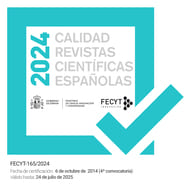Sitges (Catalonia) and gay carnival: tourism and its new pilgrimages
DOI:
https://doi.org/10.25145/j.pasos.2004.02.009Keywords:
tourism, carnival, gay, pilgrimage, identityAbstract
In this paper, I explain the development of a tourist village in the Catalonian coast (northeast of Spain) as a gay destination during carnival times during the month February. My intention is to in- clude my reflections in this paper in the symbolic – cognitive studies about tourism and I want also to reflect about the idea of the constructions in gay culture of different places all around the world of lei- sure or/and pilgrimage. Sitges is a scale gay destination really knowledge in Western Europe during the hole year, but during carnival times, it’s convert in a gay pilgrimage in different ways and there is have been crated during those last years gays places of leisure in the village that make me create the idea of the existence of a gay Carnival in Sitges Carnival. Because we cannot consider the gay carnival inde- pendent of what I call Sitges Carnival, I explain also the development and the historical conflicts between those two carnivals, and how those separate spaces have been created..
Downloads
Publication Facts
Reviewer profiles N/A
Author statements
- Academic society
- PASOS. Revista de Turismo y Patrimonio Cultural
- Publisher
- Instituto Universitario de Investigación Social y Turismo. Universidad de La Laguna (España) - Instituto Universitario da Maia ISMAI (Portugal)
References
Auge, M. 1997 La guerre des rêves; exercices d'etno fiction. Paris: Seuil
Crain, M. 1992 “Pilgrims, ‘’Yuppies’’, and media men. The transformation of an Andalusian pilgrimage”, in Boissevain, J., Revitalizing European rituals. (pp. 95 - 112), London: Routeledge.
Contreras, J.; Martinez, U.; Moreno, I. y Prat, J. (eds.) 1999 Antropología de los pueblos de España. Madrid: Taurus.
Costa, X. 2002 “Festive traditions in modernity: the public sphere of the festival of the “fallas” in Valencia (Spain)”, The sociological review, 50(4): 482 – 504.
Crick, M. 1989 “Representation of international tourism in the social sciences : sun, sex, sights, savings and servility”, Annual Review of Anthropology, 18: 307 – 344.
Cymene Howe, A. 2001 “Queer Pilgrimage: the San Francisco Homeland and Identity Tourism”, in Cultural Anthropology, 16(1): 35 – 61.
Da Matta 1981 Universo do carnaval : images e reflexôes, Rio: Pinakotheke.
Debord, G., 1967 La société du spectacle, Paris: Buchet/Chastel.
Souza Gontijo, Fabiano de 2000 Gendres, Carnaval et SIDA ; La cons- truction des identités homosexuelles dans les situations rituelles du car- naval de Rio de Janeiro à l’ère du SIDA, Thèse EHESS 6/12/2000, Dir : Michel Agier.
Hobsbawn, E. 2002 (1983) “Introducción: La invención de la tradición”, en Hobsbawn, E. y Ranger, T. (eds.), La invención de la tradición. Barcelona: Critica.
Murray, S.O. 1996 American Gay. Chicago: Uniersity of Chicago Press.
Pichardo Galan, J. I. 2001 “El cuerpo como elemento de exclusión entre los gays”, en IX Congrés Internacional d’Estudiants d’Antropologia, Barcelona. Sin publicar.
Pitt – Rivers, J. 1991 “Los estereotipos y la realidad acerca de los españoles”, en Catedra, M. (ed.), Los Españoles Vistos por los Antropólogos, Barcelona: Ediciones Jucar.
Sahlins, M., 2001 “Dos o tres cosas que sé acerca del concepto de cultura”, en Revista Co- lombiana de Antropología, Vol 37, enero - diciembre [publicado originalmente como Marshall Sahlins, 1998 “Two or three things that know about culture”, The Royal Anthropological Institute, Incorporating Man, 5(3): 399-422].
Santana, A. 1997 Antropología y turismo. ¿Nuevas hordas viejas culturas?, Barcelona: Ariel.
Sella I Monserrat, A., 2000 “Breu semblança d’un desamor: Sitges i el carnaval Gay”, en VV.AA., Cinc Mirades al Carnaval de Sitges, Barcelona: L’Eco de Sitges.
Turner, V. & Turner E.L.B. 1995 [1978] “Introduction; Pilgrimage as a Liminoid Phenomenon”, in Tuner, V., & Turner, E.L.B., Image and Pilgrimage in Christian Culture, New York: Columbia University Press.
Downloads
Published
How to Cite
Issue
Section
License
I confirm that the work is original (of my/our authorship), and that it will not be submitted to other journals or publications until the final resolution of the review process in PASOS, RTPC.
I authorize the publication of my work by PASOS, PSTN of free and open access in any of the formats that I deem appropriate, for an indefinite period of time and as a non-remunerated collaboration.
Likewise, the author(s) understands that the published work may be linked or deposited on any server or included in other publications (republication), provided that the new place and/or new edition references the original publication and acknowledges the authorship and copyright ownership of PASOS RTPC publications.
Authors understand that a plagiarism-self-plagiarism check will be performed, and the article may be removed at any time from the editorial flow.










